2015-2016 Series
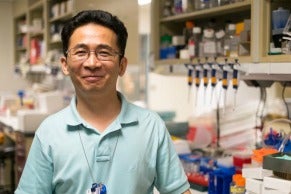
September 10, 2015
Xuefeng Liu, MD, PhD
Associate Professor of Pathology, Director of Telomeres & Immortalization Program
Center for Cell Reprogramming, Georgetown University Medical Center
To begin our second year of the Seminar Series we welcome Dr. Xuefeng Liu, Director of the Telomeres and Cell Immortalization Program at the Center for Cell Reprogramming. Dr. Liu’s research focuses on mechanisms of cell immortalization which is a very early stage of human cancer. In this seminar, he will discuss non-canonical functions of telomerase and role of cytoskeleton alterations in conditional reprogramming (CR) and immortalization.
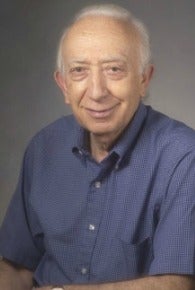
October 8, 2015
Ettore Appella, MD
Senior Investigator, Laboratory of Cell Biology
National Cancer Institute, Center for Cancer Research
Dr. Ettore Appella was among the first researchers to identify the tumor suppressor protein p53, and he has studied its roles in the cell and regulation by post-translational modification. He and his colleagues further identified a critical phosphatase that is upregulated by p53 following DNA damage. This phosphatase, Wip1 (PPM1D), is amplified or overexpressed in several human tumors. Dr. Appella’s research currently is focused on exploring the roles of Wip1 in cells and its contribution to tumorigenesis. They additionally are exploring how Wip1 is regulated. Finally, Dr. Appella’s laboratory is working to develop specific inhibitors of Wip1 that could be advanced to the clinic. Dr. Appella obtained his MD from the University of Rome, Italy, and continued his research at Johns Hopkins and the NIH (National Institute of Diabetes and Digestive and Kidney Diseases) on dehydrogenases. Since 1965, he has been in the Laboratory of Cell Biology where he continues his research on tumor immunology, the p53 tumor suppressor protein, and the design of antiviral drugs against HIV.
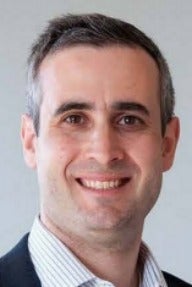
December 2, 2015
Jesse Boehm, PhD
Associate Director, Cancer Program
Broad Institute of Harvard and MIT
Dr. Jesse Boehm is the Assistant Director of the Broad’s Cancer Program and a Merkin Institute Research Fellow. In these roles, he both leads a research team and works closely with Cancer Program director Todd Golub on the scientific planning and strategic execution of program projects, collaborations and activities. Dr. Boehm’s lab focuses on developing powerful methods and tools to accelerate the translation of cancer genomics into cancer therapeutics. Active projects in the lab include developing pipelines for personalized testing of tumor vulnerabilities as part of the Cancer Cell Line Factory, assessing the tumorigenic potential of thousands of new cancer mutations as part of the Target Accelerator, and developing systematic experimental and computational approaches to validate biomarker-dependency relationships as part of Project Achilles.
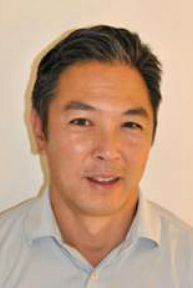
January 14, 2016
Calvin Kuo, MD, PhD
D’Ambrogio Professor of Medicine
Stanford University School of Medicine
Dr. Calvin Kuo is the Vice Chair for Basic and Translational Research within the Department of Medicine as well as the D’Ambrogio Professor of Medicine at Stanford University School of Medicine. He also co-leads the Cancer Biology Program at the Stanford Cancer Center.
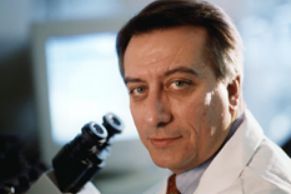
February 11, 2016
Carlos Cordon-Cardo, MD, PhD
Professor of Genetics and Genomic Sciences
Icahn School of Medicine at Mount Sinai
Carlos Cordon-Cardo, MD, PhD is recognized internationally for his groundbreaking research in experimental pathology and molecular oncology, holds the appointment of Chair for the Department of Pathology at The Mount Sinai Medical Center. Dr. Cordon-Cardo is a leader in the mechanisms of tumor suppression. His research has focused on the analyses of multidrug resistance and alteration of tumor suppression genes in human cancer. He developed and implemented an oncologic molecular pathology discipline and helped create the “systems pathology” platform. This approach uses systems biology to form mathematical models of the interaction and behavior of cancer cells with the goal of determining tumor pathogenesis and clinical outcome.
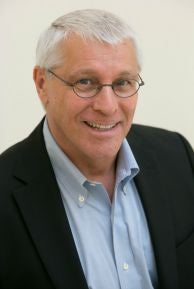
March 16, 2016
Owen N. Witte, MD
Professor of Microbiology and Molecular Genetics
Howard Hughes Medical Institute- UCLA
Owen Witte, MD, has made significant contributions to the understanding of human leukemias and epithelial cancer stem cells. His focus on stem cell research grew out of his long-term interest in understanding the cells in which cancers and leukemia originate. He hopes that research coming out of the UCLA Broad Stem Cell Research Center will change the understanding of many human diseases and that the discoveries will result in new treatments for lethal diseases. In addition to serving as director for the UCLA Broad Stem Cell Research Center, Dr. Witte is a Howard Hughes Medical Institute Investigator. He currently holds the UCLA David Saxon Presidential Chair in Developmental Immunology. A professor of microbiology, immunology and molecular genetics, Dr. Witte joined the UCLA faculty in 1980. He graduated from Cornell University and earned his medical degree at Stanford. He did his postdoctoral fellowship at the Massachusetts Institute of Technology with Nobel laureate, David Baltimore.
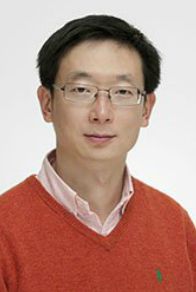
May 12, 2016
Sheng Ding, PhD
Professor at the Department of Pharmaceutical Chemistry
UCSF School of Pharmacy
Dr. Sheng Ding is stem cell scientist who uses novel small molecules to control and reprogram stem cell activities in various tissue types. Applying his groundbreaking techniques, he has previously succeeded in transforming skin cells into functional brain, heart, liver, and insulin-producing pancreas cells. He is currently William K. Bowes, Jr. Distinguished Investigator and Professor at Gladstone Institute of Cardiovascular Disease, and Department of Pharmaceutical Chemistry, University of California San Francisco. He obtained his B.S. in chemistry with honors from Caltech in 1999, and a Ph.D. in chemistry from The Scripps Research Institute in 2003. Dr. Ding has pioneered on developing and applying innovative chemical approaches to stem cell biology and regeneration, with a focus on discovering and characterizing novel small molecules that can control various cell fate/function, including stem cell maintenance, activation, differentiation and reprogramming in various developmental stages and tissues. Ding has published over 100 research articles, reviews and book chapters, and made several seminal contributions to the stem cell field. Ding is a cofounder of Fate Therapeutics and Stemgent.
